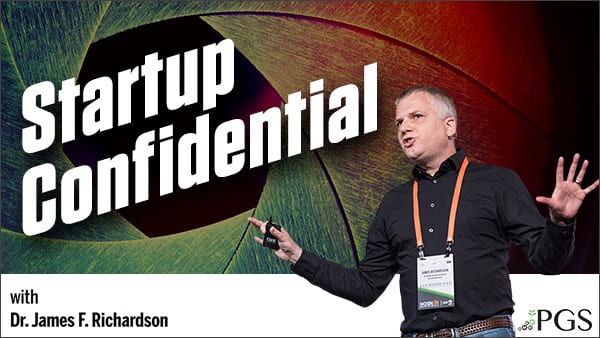PODCASTS / E50

Ep. 50 Founders Build Businesses. Consumers Build Brands.
JULY 15, 2021
Inc. 5000. 40 under 40. She-preneur awards. Inc. magazine profiles. Guest speakers at trendy conferences. There are many fora in which the mythical founder (or founders) appear to be creating a business out of thin air, narrating their success alone. And, in America, we have long-standing mythology of the lone wolf maverick, the warrior hero. John Wayne. Rachel Carlson. Erin Brockovich. Dirty Harry. Elon Musk? Many of us share an almost mystical belief that individuals cause things to happen autonomously.
The reality is that building a business itself is a social process, but building a brand is a social process you will never fully control. Brands are the outcome of a social process in which product usage and its meanings get imbued back onto the master trademark through repeated, sustained use and storytelling about the products. Overtime. A lot of time. Without customers who repeat purchase your products, you don’t have either a business OR, more importantly, a set of brains in which memories of using the product get recorded.
The more memorable you are, the faster the conversion rate and the faster you build a brand.
Too often, founders in the throes of cash flow management AND who do not focus on consumer interaction/marketing outreach think of brand-building as a financial process.
Your UPCs total annual sales equal a business, yes, but they do not equal a brand automatically. Not even close.
Brands become real when the mere mention of a trademark triggers repurchase even among lapsed consumers who got distracted by other alternatives. But it takes years for your brand’s trademark to become a symbol with such a powerful reminder effect on the consumer’s brain. I’ve never seen a shortcut around it, except in brands that burrowed furiously into a hyper-connected social niche.
What founders can and should do is make their brand a social badge somewhere in local life, especially if they sell snacks or beverages. Becoming a social badge involves creating habitual users inside real-life, tight social networks whose group values and behaviors make your novel products unusually relevant.
Often, marketers immediately jump to college students and campus marketing because they’re obsessed with age-based segmentation. And college students connect very intensely because of their life stage if nothing else. IN reality, though, the social network you choose could even be an occupational group like ER nurses (a special breed, trust me).
The first sign that your product line is becoming a brand is when real folks start using your trademark as a social badge inside their occupational or lifestyle networks. This use of your trademark as a mysterious, powerful symbol of modernization eventually will attract folks beyond the initial niche, often at events that bridge out to the broader world. However, until you can create heavy users out of either ‘status adopters’ or ‘pragmatic adopters’ from well outside the early niches you sell within, you won’t know if your business is becoming a brand or is destined to become one.
The point I’m making here is that being a brand is NOT about total trailing sales. Having spent too many years soaking in big POS datasets across the grocery store, I know all too well that there are an astonishing number of $10M, $20M, even $50M CPG brands that have almost no real brand power whatsoever, no memorability at all. They are forgettable commodities purchased out of shopping habits, not brand enthusiasm.
In the early years, your local fans may treat you with reverence and awe if you have built the business locally and if you’ve done a lot of event marketing. This will confuse you because it may suggest to you that you have a brand already. But, in most cases, these fans are fans of YOU and your products. Or far too many of your consumers are viewing your business this way. When your personal identity is too closely associated with the trademark, you may generate enthusiasm, yes, but the trademark is still a brand information. Once you leave your home turf, your magical brand turns back into an unknown trademark. I’ve met more than one local kombucha maker who thought they could go national with a fundraise because the local enthusiasm at home was intense. Nope.
What is brilliant about incubating a brand locally is your ability to learn from consumers and iterate accordingly in tight social networks of adopters and fans. And it tests the power of the products to generate enthusiasm and repeat, habitual purchases all by themselves because initially they’re sold by a relative nobody (You). So, you add no symbolic power to the sale initially, is what I mean.
Part of the ongoing problem here is the language the industry uses. “Brand” is a short, convenient handle to refer to your business. Unfortunately, it’s also sexier to refer to the cool logo on your packages than it is to use the less sexy LLC name that makes it.
You’ll still use the word “brand” this way, despite my rant here but, please, remember that your consumers built the brand, not you. Without repeat purchasing fans and eager trial based on their mental anticipation, you have nothing remotely resembling a brand. Instead, you have a commodity for sale.
As usual, folks, be safe out there…